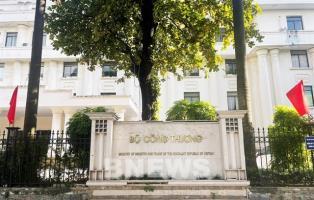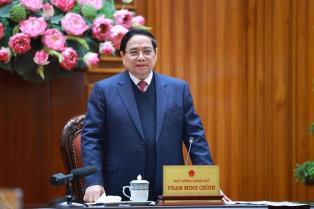The HCM City Investment and Trade Promotion Centre and Việt Nam International Arbitration Centre organised a conference on “Real Estate Transactions in a Volatile Market and Legal Context” as part of the 2025 HCM City Legal Management Series on August 28.
HCM City — The HCM City Investment and Trade Promotion Centre (ITPC) and Việt Nam International Arbitration Centre organised a conference on “Real Estate Transactions in a Volatile Market and Legal Context” as part of the 2025 HCM City Legal Management Series on Thursday.
It attracted more than 200 participants, including leading legal experts, real estate developers, investors, and lawyers, and was hailed as a platform to discuss challenges and opportunities for the property sector.
Speaking at the opening session, Hồ Thị Quyên, deputy director of ITPC, said real estate is not only a growth engine but also a sector with wide-ranging spillover effects across the economy.
She said in recent years the market has benefited from supportive government policies that have generated momentum and opened new investment opportunities.
However, the constant adjustments in the legal framework have also posed hurdles, she said.
It is crucial that businesses are able to access accurate information, engage in dialogue and develop a holistic understanding of transactions under shifting legal conditions, she said.
Only with transparency and compliance could Việt Nam build a safe and sustainable property investment environment, she stressed.
Châu Việt Bắc, deputy secretary general of the VIAC and head of its HCM City branch, said real estate-related disputes consistently account for a large share of the VIAC’s work.
In 2024 they ranked third, accounting for 14 per cent of disputes.
He attributed this to past inconsistencies in legal regulations.
With the recent reforms, including passage of the 2024 Land Law and 2023 Real Estate Business Law, he was optimistic that upcoming transactions would be more efficient and secure.
But he warned that legal reforms must go hand in hand with corporate readiness.
Enterprises need to equip themselves with legal knowledge, strengthen risk management and keep pace with regulatory updates to reduce disputes, he added.
The conference featured an in-depth keynote by Phan Đức Hiếu, standing member of the National Assembly’s Committee on Economic and Financial Affairs and a VIAC arbitrator, who spoke about recent policy developments directly affecting real estate businesses.
He referred to the significance of Law No. 90/2025/QH15, which amends eight key statutes including the Law on Investment, the PPP Law and the Bidding Law.
He said these reforms introduce changes to investment approval procedures, particularly related to housing, industrial zone infrastructure and new development ventures.
For social housing, he pointed to Resolution 201/2025/QH15, which sets out a pilot mechanism with specific conditions and procedures for related transactions.
Land use policies were another focal point, with Hiếu analysing recent amendments in the Land Law that cover planning, land recovery and valuation mechanisms.
He urged developers and investors to carefully assess how these new frameworks affect their business models.
The National Assembly is expected to pass 48 new pieces of legislation, and enterprises need to keep a close eye on them to adopt strategies swiftly, he added.
The discussions were structured into two sessions, one focusing on land-use rights with technical infrastructure and the other on housing transactions involving properties under development.
Legal experts like Vũ Lê Bằng, Lương Văn Lý, Nguyễn Trúc Hiền, Võ Trí Hảo, and Vũ Thị Quế provided insights into regulatory gaps and potential risks.
At the first session, panellists said the legal definition of “land-use rights with technical infrastructure” is unclear, leading to confusion during project trades.
The absence of explicit rules on whether the transferee qualifies as a new developer has created uncertainty and potential construction delays.
At the second session, experts examined disputes in forward housing sales, often arising from premature marketing by developers who have yet to meet legal requirements.
They also flagged risks in cross-border deals, where foreign buyers face exposure due to unverified project liabilities, and issues related to capital mobilisation through deposits or “priority fees” not recognised by the law.
Quế especially stressed the need for safer and longer-term financing models, reminding developers that while the Real Estate Business Law has tightened rules, many investors continue to rely on unregulated methods that carry legal vulnerabilities.
She also highlighted the importance of proper negotiation in bank guarantee agreements, referring to Circular 61/2024/TT-NHNN, to ensure adequate protection.
The conference concluded with an exchange between experts and participants on practical concerns faced by businesses, generating policy recommendations.
By fostering dialogue between lawmakers, arbitrators and industry stakeholders, the event helped take an important step towards enhancing legal certainty and creating a transparent and sustainable real estate market. – VNS




